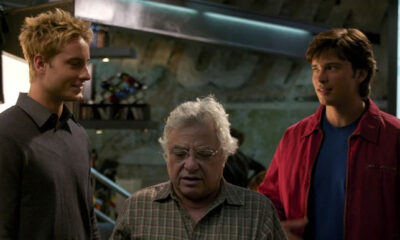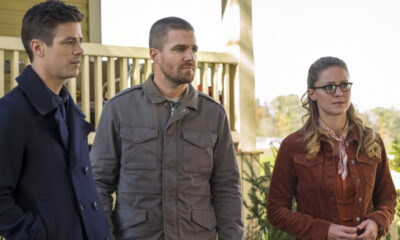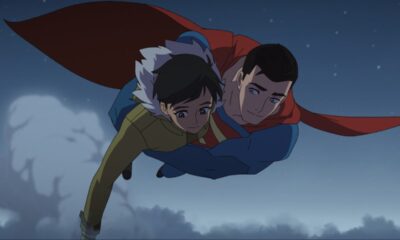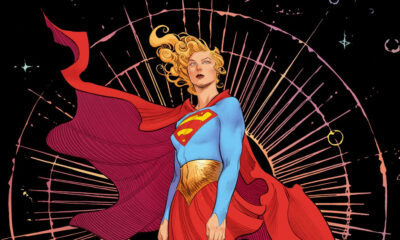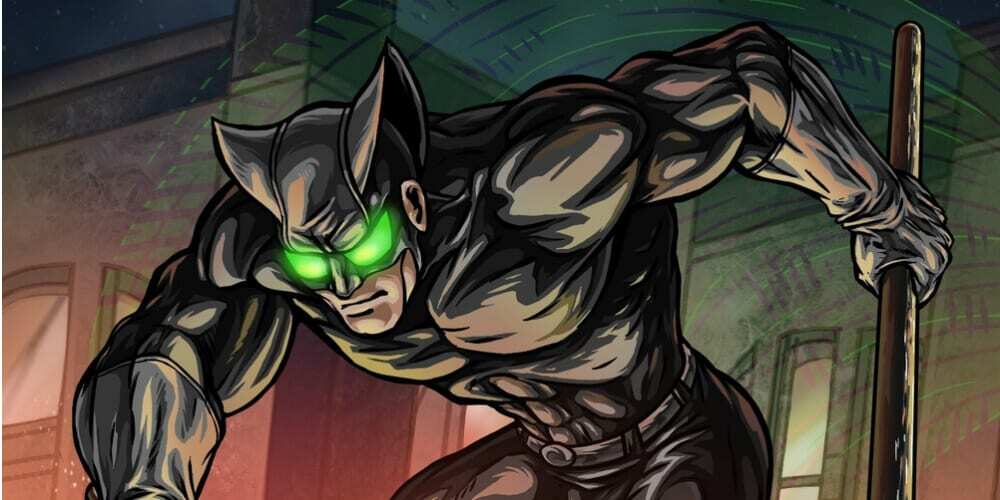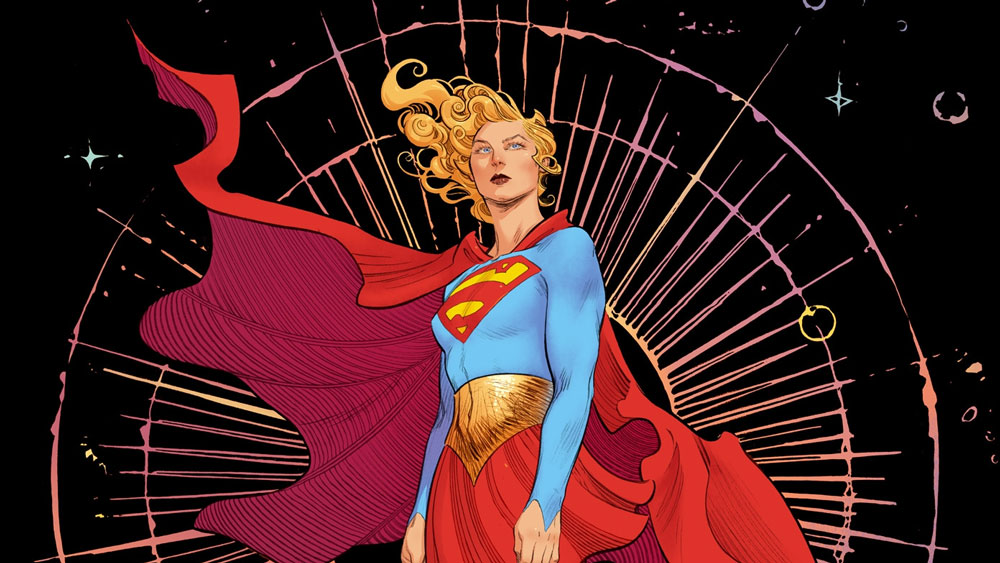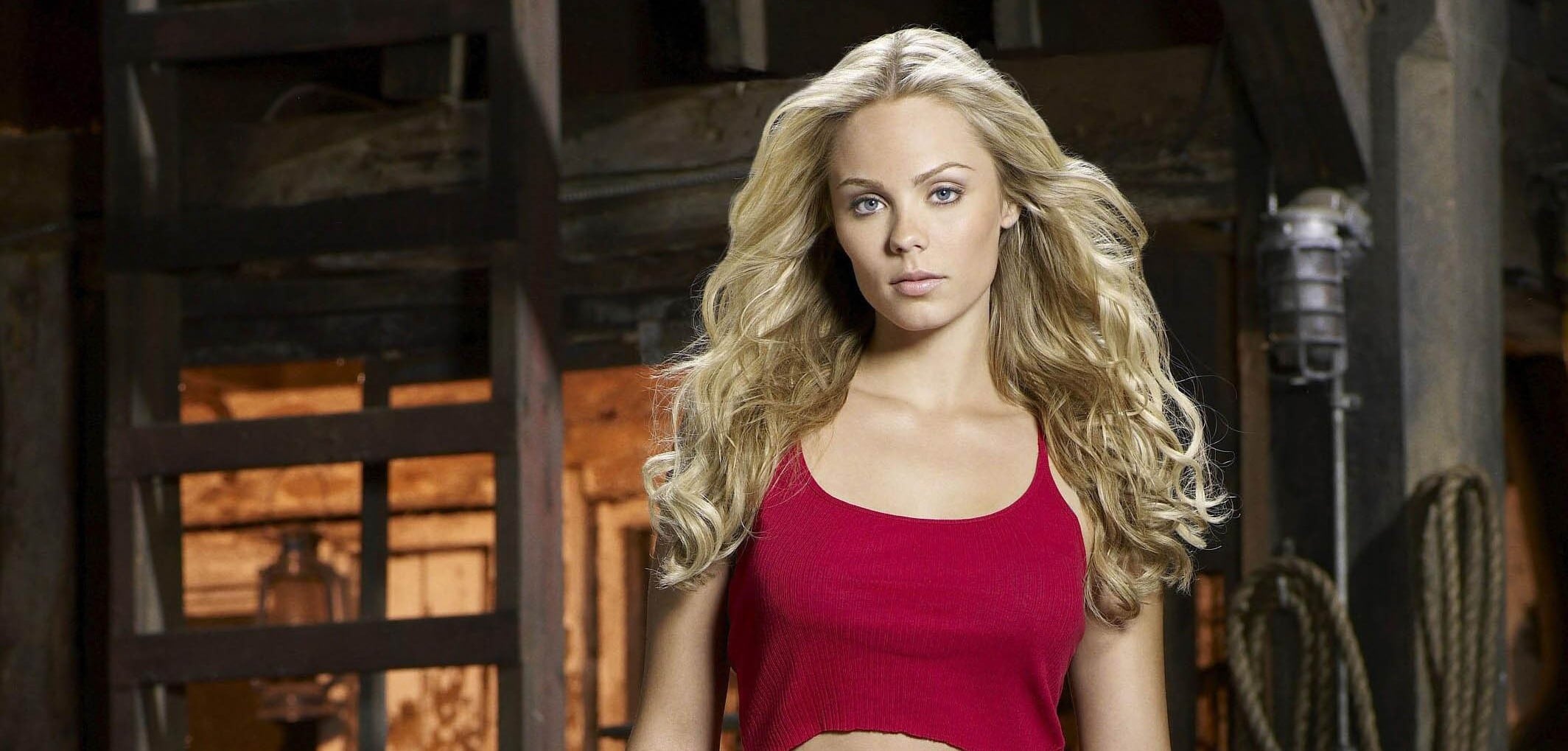Verdict: James Olsen finally gets the episode he deserves as Supergirl returns to its powerful themes of prejudice and solidarity to buoy an episode that’s better as a standalone as it is a continuation of an increasingly weak season arc.
Review:
This season, Supergirl has had a James Olsen problem. The character was originally conceived as a love interest for Kara, but that was creatively abandoned after one season. It wasn’t without justification, as James’ storyline crammed an interesting character into a bland love story, but that creative U-turn at the start of season two left CatCo’s resident photographer unmoored. Supergirl tried its hand at making him the head of CatCo, but it’s never been able to actually make a story out of that as CatCo has receded further to the background. And it’s made him Guardian, which was a character turn that never really made sense, and ran out of gas before Supergirl could find anything unique within the generic dark and gritty trappings of his vigilante antics. Since the show’s return in 2017, James has mostly existed on the periphery, popping up as a sidekick here, or as a confidante there, but never finding a fixed role.
Three episodes from the finale, it might seem like poor timing to try and finally rectify the Guardian problem now with a James-centric story. City of Lost Children, however, manages to have its cake and eat it. James gets a strong close-ended story that unearths the potential that’s been visible all season with his character and puts it to good use, and the story just happens to link intrinsically to the goings-on in the main arc story with Rhea. Not all of the individual parts click, but it’s a smart way to combine the intimate character stories that Supergirl does best while servicing the heavy lifting of setting up whatever’s set to go down in the final two episodes.
A sentence I’m thankful to finally type: James’s story really does work. It works for several reasons, but it’s worth starting with the way in which Supergirl finally shows some self-awareness about the incongruence between Guardian, who exists in a world of dark alleys and drug dealers and the upbeat heroics of the rest of the show. Course corrections can often come across as awkward and forced, briefly betraying the emotional logic of the characters to serve a longer-term goal (this was the case, arguably, with the way in which the show broke up Kara and James so abruptly), but City of Lost Children manages to pivot smoothly into exploring a different aspect of James’ heroism by having him explicitly acknowledge his feelings of inadequacy as a hero who only seems to spread fear. In doing so, Supergirl seems to make an important realisation: James Olsen is a character worth exploring in a way that’s unique to his character, rather than conferring to a ‘hero’s journey’ formula that’s been present in comics since the very first appearance of Batman.
To do this, City of Lost Children finds a partner for James. Not Winn, whose role as the quippy sidekick was fun, but further reinforced the formulaic blandness of the Guardian story, but someone new: Marcus, an alien kid susceptible to sudden attacks of telekinesis. Pairing a superhero up with a kid sidekick is nothing new, but instead of mining the humour from the juxtaposition of an innocent child and a careworn adult, City of Lost Children finds pathos in the comparability between the situations of Marcus and James. It’s actually the case here that what Supergirl doesn’t say is more interesting than what it does say. On one level, we’re being guided to assume that this is a mentor/mentee arc where James discovers himself by imparting the lessons his own role model, his father, taught to him to a younger boy with the potential for both goodness and harm. That’s a perfectly good arc for James, because it shines a light on the influences and inspirations that make him tick and unveil aspects of his character that are much more likeable than the ones that led to the formation of Guardian, such as his empathy and resilience in the face of seemingly insurmountable obstacles. It helps, too, that Mechad Brooks and Lonnie Chavis (who made his name as the world’s cutest child actor as young Randall on This is Us) have a really endearing rapport in their scenes as Marcus slowly warms up to James in response to his displays of emotional honesty.
Yet the most interesting parts of the James/Marcus storyline is the way in which it brings Supergirl’s metaphors of race and persecution back to the surface. City of Lost Children absolutely makes sure that this is a key part of the way in which James and Marcus bond as two people who can recognise their experiences of marginalisation in one another, and it’s hard to ignore the real-world resonances in Marcus’ sad recollection of the constant rejection his kind faced as they hopped from planet to planet, looking for home. Considering how Supergirl has defined itself season two as a show very willing to explore issues of social justice, it’s never quite managed to tackle the specificities of racial prejudice and the isolation that it can cause within a society in the same way it’s tackled the general immigrant experience, so this storyline is a welcome rejoinder to that. Yet at times, City of Lost Children can be a bit reticent to engage with this particular interpretation of the James/Marcus story. Most explicitly in the scene between J’onn and James, it’s made clear that the episode wants their bond to serve a much more general thematic purpose – J’onn even explicitly rejects the idea that James is paired up with Marcus because he’s a black man at one point. I can understand why that is – Supergirl often likes to handle its socially-tinged stories with a straightforward, open-hearted approach, which isn’t always conducive to exploring something that’s fraught with complexity such as race. But the episode’s exploration of race gets so far on subtext alone, and it’s more original and compelling than the story about James learning to be a mentor that takes precedence. James’ story is still easily the most interesting one he’s received for quite some time, as it turns the Guardian story on its head to portray James as a figure of lightness and hope, opening up emotionally instead of concealing his identity to all those he helps, and makes him into a more convincing hero figure in the process. It’s a shame, however, that City of Lost Children takes a few half-measures when it perhaps should have been bolder and opener.
Meanwhile, another kind of parental relationship of a very different kind unfolds between Rhea and Lena. After a season of teasing Lena’s descent into darkness as a Luthor, Supergirl has cracked how to exploit that tension in an unexpected way, by having Lena become a key perpetrator in the season’s villainous plot without knowledge, motivated by a desire to shy away from her family’s evil heritage instead of leaning further into it. Rhea and Lena have a compelling dynamic because it’s layered in a way that makes it hard to see just what it represents – it’s a manipulative relationship based solely on the function Lena provides, a genuinely affectionate relationship between two women who can identify with one another and find solidarity, and quite evidently a substitute for the holes that have been left in their lives by heartbreak and familial disputes. That means, when Rhea finally reveals her betrayal to Lena and severs that affection, it stings emotionally as a cruel bit of manipulation of Lena, and as a cutting off of the potential for empathy and kindness that was genuinely evident within some of Rhea’s motherly pep talks throughout this episode. We don’t really get a lot of time to dive into Lena’s reaction to this latest betrayal, but the cruel circumstances of it, in which Lena looked for a replacement for her mother and found someone even worse, are fertile ground for an interesting conclusion to Lena’s story this season.
Rhea, however, remains a bit of a problem character. Her complex relationship with Lena lends her some intrigue, but in her role as the Big Bad and Kara’s principal antagonist for the end of the season, she’s not very compelling. The DC shows, for all of their flaws, have at least shown a good track record in crafting villains who reflect the themes and stories of that season, such as how Prometheus represents the dark side of Oliver’s legacy and Savitar represents a despairing Barry who has lost hope. Rhea, conversely, doesn’t pass that test because she doesn’t have a clear link to the character journey Kara has been on this year (that is, admittedly, as much of an indictment of Kara’s inconsistent and hazy arc as it is Rhea as a villain) and doesn’t reflect the season’s overarching themes of heroism, prejudice and solidarity. Her motivation is strangely petty for such a significant villain, seeing Kara as an irritating obstacle rather than any kind of personal enemy, and her ultimate plan is a generic attempt to turn Earth into a vision of her homeworld by hostile invasion. It’s much the same problem that season one had with Non at the end – despite some interesting themes at play, Non was little more than a sneering stereotype whose actions provoked Kara into proving her heroism. Rhea might be a touch more complex and sympathetic, but like Non, her role is blandly functional – she exists because the season needed a villain as it had burned through the antagonist, in Cadmus, that was a better fit for the stories this season has been exploring. The final two episodes may well be a revelatory and exciting summation of everything the show has learned this year – but with such a weak antagonist at the centre, season two’s endgame is facing a bit of an uphill battle to justify the long and sometimes meandering build-up.
City of Lost Children is a much better episode than its premise would suggest, reflecting the way in which Supergirl can often reach dramatic peaks by simply putting two characters in a room together and teasing out what makes them tick if it has a strong enough central theme at the centre. It’s an episode of redemption for James, who proves himself to be a genuinely interesting protagonist if his more interesting characteristics are brought out, showing just how much the boring Guardian storyline has been weighing down his character. However, Supergirl seems to be repeating the mistakes of the past as it heads into the final two episodes of the season with an uninvolving central story that seems only to exist because it’s the end of the season, and there’s a need for a big threat that pushes everyone together. I’m hoping to be proved wrong, and as season one showed, a good endgame doesn’t always need a good villain.
Odds & Ends
- This show feels like a bit of a revolving door at the moment. James was barely in last episode, while Kara, Alex and Maggie are all peripheral or absent entirely. It’s a good ensemble, but Supergirl clearly hasn’t cracked how to balance them all at once. It’ll be interesting to see if it tries for the final episodes.
- Mon-El misses his mother, but also hates her for being a homicidal villain, but loves her too much to kill her. There you go. You can fast-forward through the Mon-El bits now.
- We spent longer in CatCo than we have done for ages here. It gets ripped apart. Poor CatCo. Can’t Cat(ch) a break.
- Rhea names Earth, which will be her new Daxam, New Daxam. Creative stuff.
- Next episode: Resist! The penultimate episode! Cat Grant is back! Earth v Daxam! Cat Grant is back!
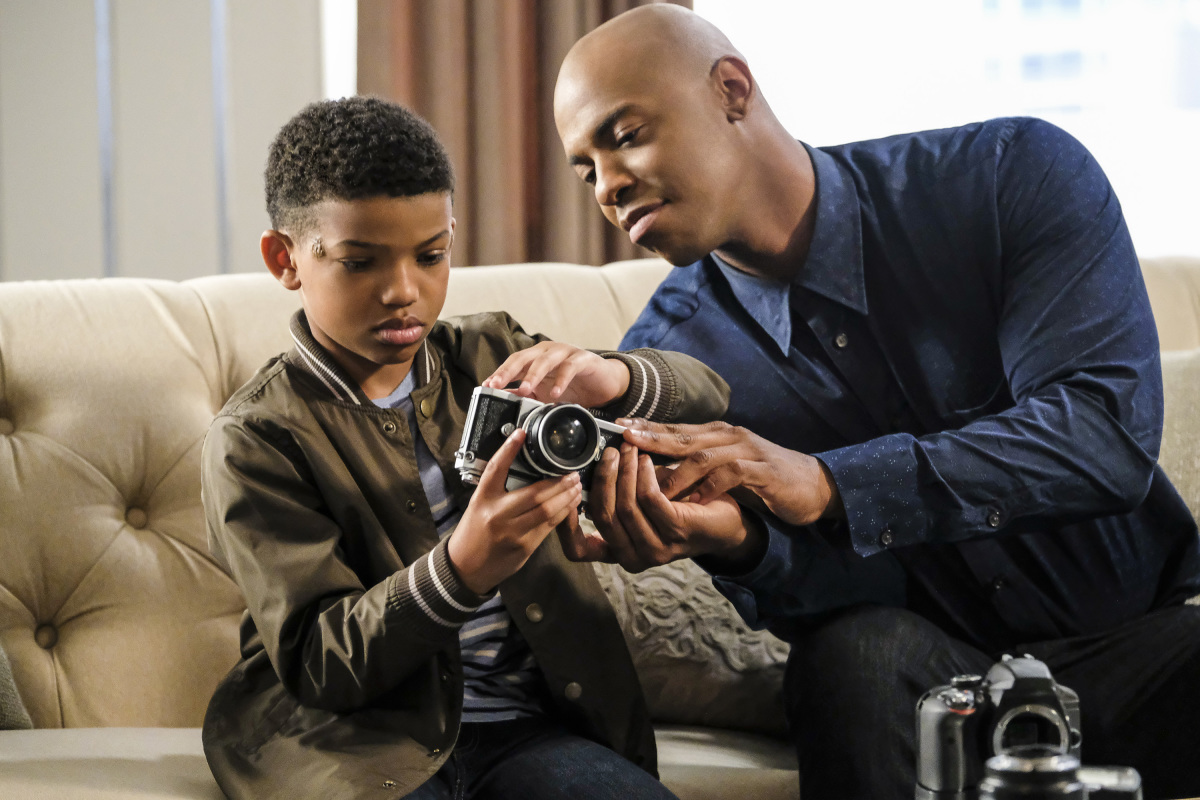
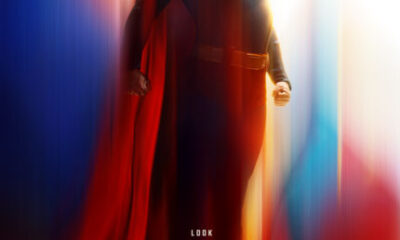
 Superman4 months ago
Superman4 months ago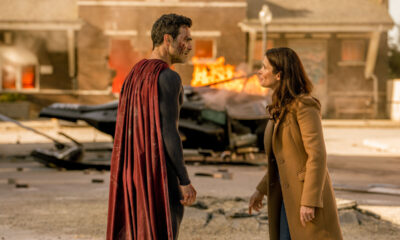
 Images5 months ago
Images5 months ago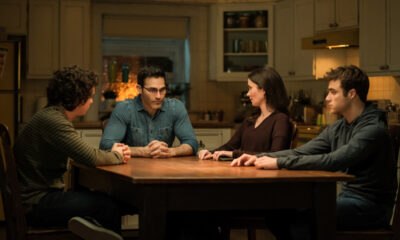
 Images6 months ago
Images6 months ago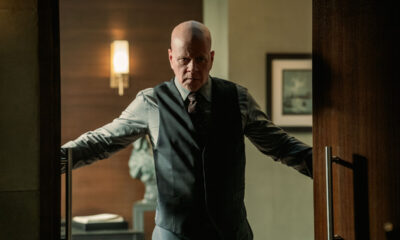
 Images5 months ago
Images5 months ago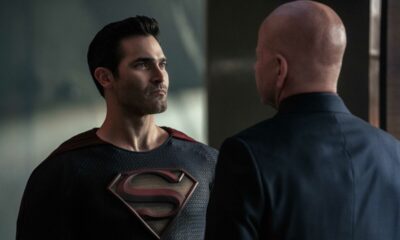
 Images5 months ago
Images5 months ago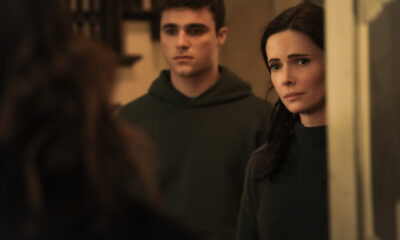
 Images7 months ago
Images7 months ago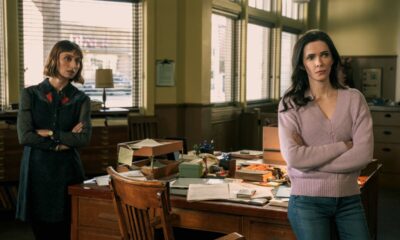
 Images6 months ago
Images6 months ago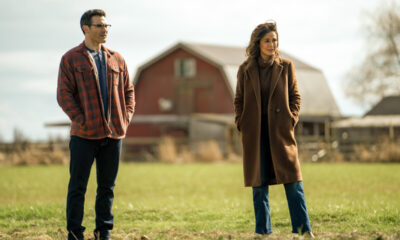
 Images6 months ago
Images6 months ago

